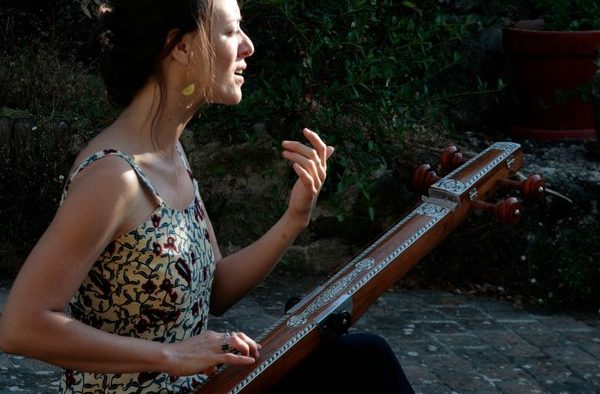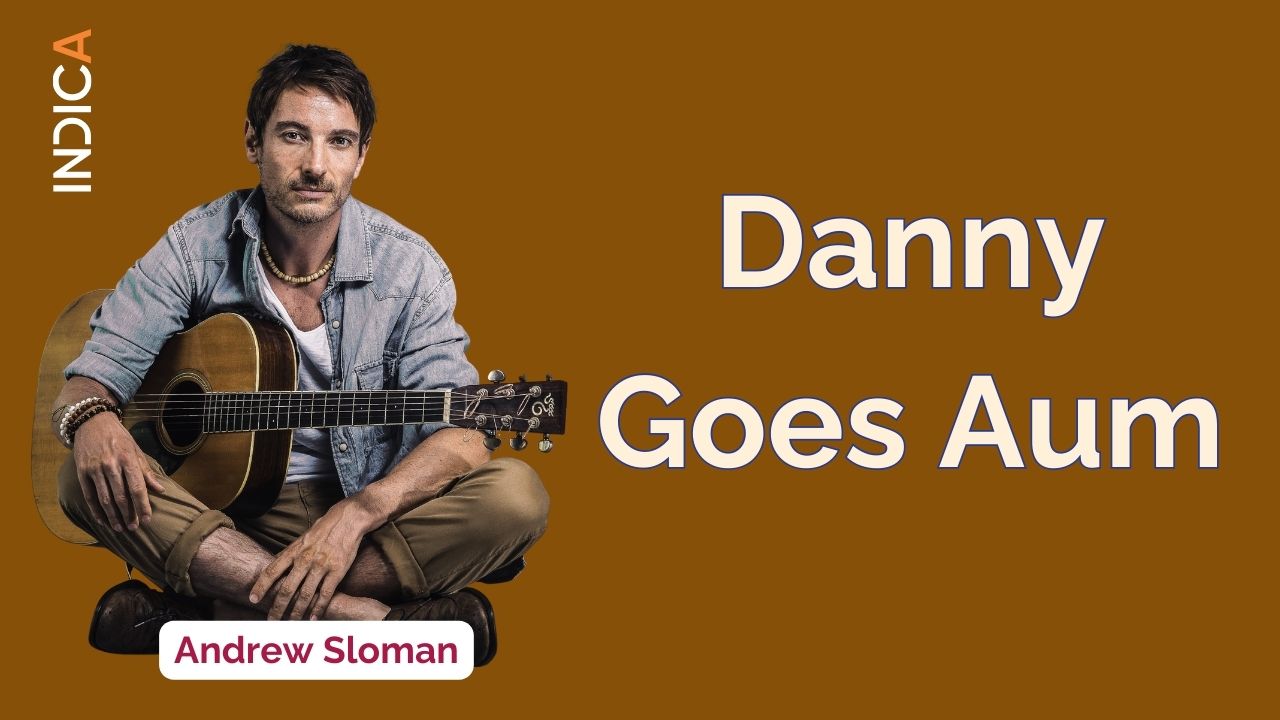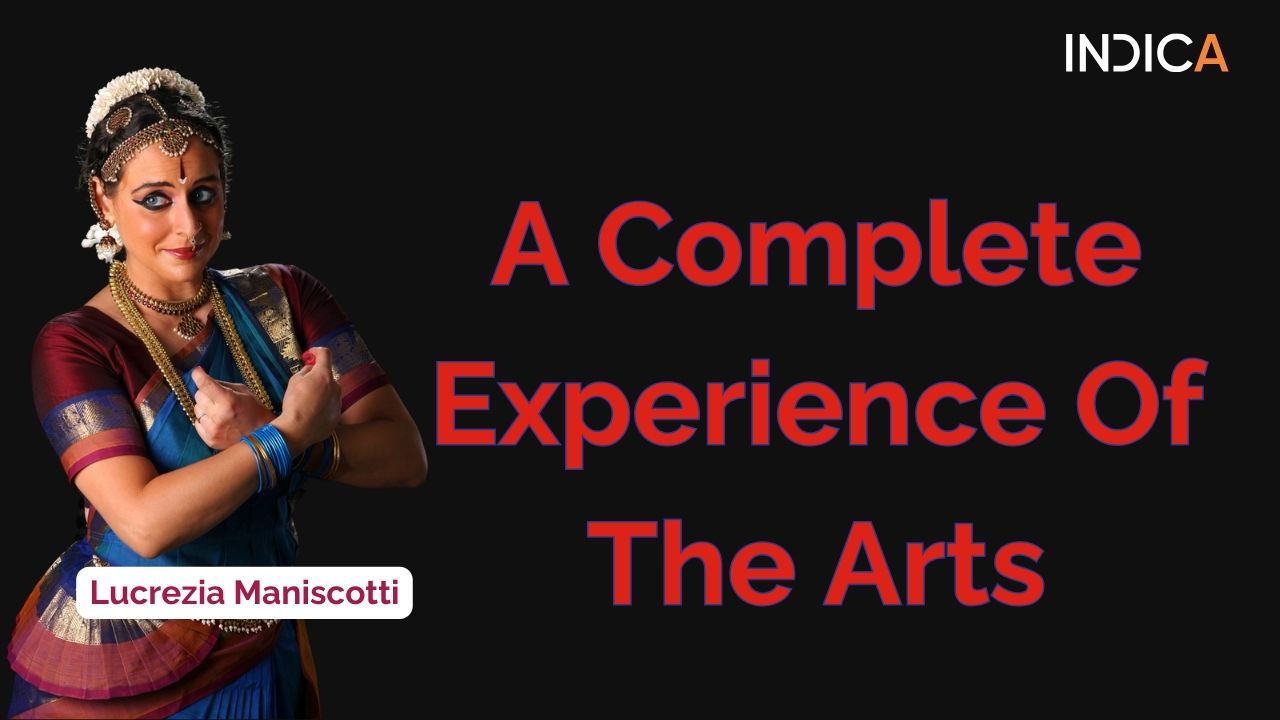Emmanuelle Martin, accomplished French pianist and Carnatic musician, speaks
about her journey across the two diverse cultures
Emmanuelle Martin was
born in a family of western classical musicians. Thirty years ago, her father
discovered Carnatic Music (the classical music of South India and started
learning singing with Savitry Nair in Paris, who later introduced him to Seetharama
Sharma: under whom he studied for many years. He also came in contact with TM
Krishna, Carnatic musician and vocalist, and this was how Emmanuelle met her
future tutor and guru.
How did you get
interested in Indian Classical music? Did your earlier training in music help
you to learn Carnatic music?
I was born in a family of western classical musicians. About
30 years ago my father discovered Karnatik Music and started learning singing
with Savitry Nair in Paris who later introduced him to Seetharama Sharma with whom he learnt for
many years , he also met TM Krishna back then and they became friends which is
how I got introduced to him as my teacher many years later.
Yes and no!
Besides a sort of natural musical sense due to my earlier
music training; I would say it helped me mainly for two things: a sense of
practice and a sense of Sruti.
From a very early age I learnt and practiced the
piano, diligently, daily. This allowed to shape in me the ‘muscle of
practice’ and made it easier to be naturally inclined to many hours of daily
singing practice once I started learning singing from TM Krishna in 2004.
The other thing it helped me with is a sense of Sruti. The
advantage of the piano is that unless you miss the key or that the piano
is out of tune, each note is where it is and there is no risk of being approximate
so that definitely educated my ear to Sruti or pitch.
Other than these two things; I had more things to
deconstruct from my previous musical training, musical concepts to let go off
and start afresh. It was indeed like starting an entirely new discipline.
Is there any common
ground between the music of France and India?
I would say that these two music systems function
really differently; they both are music so they do have some common ground
of course but their approach, the way they are built and evolve are organically
completely different, in my opinion.
In your opinion do
you think it is necessary to understand the culture of a country to appreciate
its music?
Yes and No. I think like everything; it depends on many
things!
I would say in a way it is not necessary because it
depends on why one appreciates or wants to learn music. In my case, I
was at first not interested at all in Indian culture; I was familiar with
it due to my father’s implication with India and its music. But I had no
interest whatsoever in its culture, customs, Hinduism, temples, gods,
goddesses, rituals. I was curious when I was a teenager because it was ‘exotic’;
far away from home and my father promised to take me there if I would learn at
least the ‘Ganamrutha Bodhini’ first book so i could accompany him in his
classes with Sharma sir.
Many years later, when I was 19, I fell on my knees… totally
in love with this music; from one moment to the next it became the most
beautiful ‘thing’ I had ever heard or witnessed on this planet! I decided to
move to India to learn with my guru. He lived in Chennai so I moved to Chennai.
I remember early on, during the first months when I was
there; people would approach me sometimes at my guru’s concerts and ask me
if was able to “understand what I was singing”; and of course then I
didn’t; and i didn’t even want to understand. I really truly didn’t care! Because
what had touched me to the core was Music itself; which included everything of
course but at that stage; intellectually I didn’t need to ‘understand’. I was
completely in love with the music and I knew that this love was sincere: so
Krishna anna would tell me when I
questioned him on that subject not to worry; that my only job was to ‘sing’;
and practice and that the ‘rest would come’.
Indeed after a few years, naturally; and after living there
and travelling so much all over India to temples, big cities, towns and tiny
villages along with my teacher and co-musicians for concerts ; after
living there full time; the flavour and context of these all these
beautiful songs I was learning started to become more real for me; until
a point where the intrinsic ‘meanings’ of songs would become inseparable
even though I would not understand their words by words meaning (and I still
don’t); the essence; the subtle communication of the songs seem to ‘get in’ in
some mysterious ways, very naturally and subtly, without going through the intellectual
centre. I don’t need to know that this word means this or that; but of course,
later I can study the words if I want. I always read the translation at some
point, sometimes it helps being aware; but what I realise is that often it is
superficial information; the real substance of the ‘meaning’ is already in!
The culture therefore; for me, is inseparable from the
music; but not the superficial aspect of culture. That for me is perfectly unnecessary.
This is why there is never anything that replaces patience and long term
commitment. Culture such as the one of India; cannot be learnt in a book or ‘studied’,
in my opinion and based on my own experience; the ‘culture’ of the country and
regions which is the cradle of Karnatik Music is like a fully flavoured bath
that gets ‘in’ subtly and slowly at the price of commitment and surrender.
Nothing ever replaces this.
But I also know that now I don’t need to be in
India to sing Karnatik music.
I can live in my house in southern France surrounded by (French)
cows; eat bread and cheese (it is an image) and practice a raga alapana by the
(French) river down the hill; but of course I steeped into the culture
for 10 years.
And I think it depends on each person too. Karnatik music
was not a ‘tool’; an ‘experience” I learnt to enhance my own musical practice
or artistic discipline. I gave my life to it - completely.
So yes I think it depends; the students I teach in
France don’t necessarily have a connection to India to start with; but
those who are sincere and if they persevere, usually; naturally after a while
there will be a movement to want to come to India; and be in the cradle of this
music.
But I think this music goes beyond culture; students can be
totally touched and moved to the core by this music sitting in my music room in
the hills of southern France. Eventually they will feel a connection; I would
say it is necessary at some point, but definitely not before a while.

How did you opt for
vocal Music instead of instrumental? Was it difficult to get the Sahitya
correct?
I have always been in love with singing; it is the VOICE
that touched me; even before music itself. It really is the alchemical mix of
voice and this music together that really creates something for me. Voice serves
Karnatik music; and vice versa. I love the Veena too; and I love the violin, mridangam,
the kanjira, the ghatam….but for me there NEVER was a question. If I lost my
voice I would probably learn the Veena; but I’m not even sure. I would probably
just do gardening then.
YES, getting the sahitya correct was/is one of the hardest
part of learning this music for me being French. But I was taught to
approach sahitya as music; that it is ‘A’ and not ‘a’ or ‘dh’ and not ‘d’
(for example) and learn to listen and reproduce exactly the sound that my
teacher produced; as ‘purity’ of music and precision in my reproduction of
sound; it was never separate from the music itself. Of course some of the
letters; were more difficult than others for me to grasp; and some languages
easier than others; Tamil definitely being the trickiest to reproduce properly.
I think I’m getting closer now; but it took great effort to learn to
really hear the sound right and more than anything reproduce it properly; me
not having any ‘storage’ of these sounds in my brain!
Sometimes I would really (not intentionally) change the
meaning of a word…and gracious guru and co-students would laugh…and at least we
had some fun; (or tears for me ) in the process; but my teacher never let me get
away with approximate pronunciation. I am sure I still have lots of work to do
in that domain but I sincerely try my best.
The idea being always not to imitate; but to make mine and
reproduce in the best way that I can.
Does the spiritual
content of Indian music appeal to you?
Yes very much. I wouldn't say it appeals to me but it is
actually completely a part of me.
What appeals to you
most in your travels across India?
Feel the sacred ground under my feet, sip tea in tea stalls
in the streets; walk around the temples and just ‘be there’, now I am
completely in love with deities. I love to walk in Mylapore and sit in the
dozens of small temples around the Kapaleeswara temple. Sit and be around the
deities - Hanuman, Ganesh … they are very present and alive in my life. I
couldn't tell you why… I just love them… now (I really didn’t care for a long
time), be on the banks of the sacred rivers of India –Cauveri, Yamuna….etc, be
at the samadhis of great saint composers. I feel connected to the ancient
culture and the sacred-infused land of India.
What according to you
is the similarity between India and France?
I would say there is a high sense of ‘culture’, very
different culture but still. Great taste and sense of aesthetics! Love for the
sacred. It obviously manifests very differently in each of these two countries.
(And great food!!!)
Is it difficult to
get Western audiences to appreciate Indian music?
Yes. It takes time for them to appreciate it; because it
needs a certain level of education; but sometimes some people just fall in love
with it and then it is just a matter of nurturing their love by initiating them
into the dynamics and systems of this music. Usually it really helps them to
learn it; even just the basics; to allow them to stay connected to the music.
What other kind of
music do you like to listen to?
I love Flamenco. I love Blues. I love rock. I love Gypsy
music from Eastern Europe too. I love Micheal Jackson, Jeff Buckley, Leonard
Cohen, Bob Dylan, Janis Joplin, Nina Simone … and many more.
Is it important to
have diverse interests in Music?
I don’t know. I think first focusing on the music one’s
learning is more important than anything. Dedicated practice and
commitment, then if there are other musical interests, well and good. I
think it is important to follow our natural inclinations and tastes whatever
they are in music because then you are more ‘unified’ in yourself even if you
only dedicate yourself to one art form. There may not be any attraction to any
other style of music; fine; but if there is I don’t think it helps to repress
it or try at all cost to only focus on Karnatik music (for example).
I definitely don’t think one needs to know western music to learn Indian
music quite the opposite; but later; once one has ‘mastered’ the music to a certain
degree; I’m sure listening to diverse types of music enriches and helps
one not become too rigid or to just enrich his or her experience of different
sounds rhythms; styles etc.
I listened to only Karnatik music for the first many years
of my training. I just didn’t feel like listening to anything else, but then
slowly (when close to over dosing!) I started listening to other things again;
artists I loved from my ‘previous life’ in France; for enjoyment just to get
some fresh air into my head! Dance a bit to a funky beat; take a deep breath
and sit again to practice! This helped me to reconnect with my own culture; the
imprints and experience of childhood and being a teenager which actually helped
me in growing in my own music training and practice. (If anything else just to
RELAX!)
You have been working
with renowned theatre director Ariane Mnouchkine; teaching Karnatik singing and
voice work to 40 comedians of different cultures for their new show ‘Une
chambre en Inde’ . What does this entail?
From January 2016 until March 2017, I taught the basics
of Karnatik music to a group of 40 comedians from the prestigious French
theatre group ‘Théatre du Soleil’ and its director Ariane Mnouchkine based
in Paris. Daily and in small groups, I taught them how to use and open their
voice; sing loud and clear, confidently and open throated, taught them and
practiced with them many hours to develop a sense of Sruti and a certain
flavour in their voices (that they needed for their show where they performed
Therukoothu). Over the months; they slowly started to be more and more
confident in singing out loud; being in touch with their own voice, singing in Sruti
and some even started developing slowly a sense of Gamakas, recognitions of
ragas etc, and a certain sensitivity to Karnatik music because they could
relate it to their own direct experience.
I think some of them really discovered their own voice and
got a real taste of what it can be to learn and sing Karnatik music which
obviously is different than many fantasies western people often have about
singing Indian music (they usually, often imagine something very airy, soft
and meditative, something soothing and relaxing…well it can also be that…but
far from being only that! At least in the way that I have learnt!). It was
grounded, real, raw, and hard sometimes. I think it helped them in their
work.
How do you integrate
music into theatre?
For now I don’t. I teach Karnatic music for actors to help
them in their work. But it is more for - know-the-process itself of this
learning that seems to have great value for theatre work. I don’t
even know why yet. That being said; I have been convinced by what I have seen
in this domain. So for now I don’t: but maybe someday I will, then I’ll tell
you how I integrate it. I think it is very delicate - it takes masters to do it
well. If it is not done by people who really know what they are doing (like
really!) it brings nothing more but only damages things. So I think if our
attempt is to create something truly beautiful (and not just exciting; seducing…
etc) one should really be very considerate before to do anything that would at
best bring nothing, at worst actually damage things.





